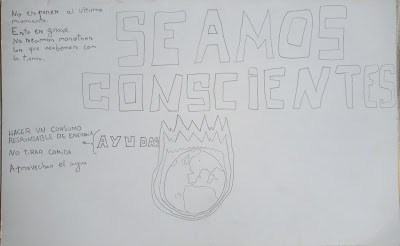In the Mediterranean region, some models project at the end of the century that the precipitation declines between –49% and –16% and the most of this decrease will probably to occur from 2080
David Pino, Fenomen – Newsletter of the Dept. of Phys. of Universitat Politècnica de Catalunya, 27 (2023) 1–2
The Mediterranean region features a climate with mild winter temperatures, but that may experience hot waves due to the proximity to northern Africa, and an odd distribution of precipitation through the year: precipitation is concentrated in few days, normally in autumn; e.g., Barcelona registered a mean annual precipitation of 559 mm in 2007-16, with only 65 days with precipitation. Similar values of mean annual precipitation are recorded in London but with twice as many rainy days.
This type of climate favors the occurrence of individual floods but also heat waves, or long periods of droughts, and floods and droughts have not occurred necessarily separated. These characteristics make the region one of the main hot spots for analyzing what will be the impact during the coming decades of the global warming of anthropogenic origin.
To infer the mean meteorological variables (i.e., temperature, humidity or rainfall), climatologists use global or regional climate models to produce projections considering different emission scenarios. These models are probabilistic; consequently, they are not able to present a detailed description of the weather on a future specific date, but they indicate the tendency of atmospheric variables, mainly temperature and precipitation, validated by simulating past periods and comparing with observations.
For the Mediterranean region, projections present smaller uncertainties for temperature than for precipitation. Moreover, the projected rainfall trend shows large heterogeneity. The Mediterranean region is warming annually 20% faster than the global average and this difference mainly occurs during the summer. However, the magnitude of the temperature increase during the coming decades shows a large uncertainty related with the emissions scenario, that depends on future policies. Depending on the scenarios, some models project at the end of the century an increase of temperature in the range 1.83–8.49ºC and 1.22–6.63ºC with respect to the period 1986-2005 (Cos et al., 2022). Precipitation in the region is projected to decline between –49% and –16% or –47% and –22% depending on the model and most of the decrease is projected to occur from 2080. However, large changes are observed for different seasons. Winter (DJF) precipitation projections are in the range +2% and –9% depending on the scenarios. On the contrary, summer precipitation is projected to decrease between –5% and –45%. However, these decreases show large variations depending on the region, being the SW Iberian Peninsula the region with the strongest decline.
The increase of temperature and decrease of rainfall in the region may produce an increase of the frequency, intensity and duration of heat waves in the period 2071-2100. For Catalonia in particular, it is already clear the increase of mean temperature and decrease of annual precipitation during the last decades. Additionally, 2022 has been the warmest and driest year ever recorded with +2.7ºC temperature and –30% precipitation anomalies with respect the period 1961-1990.
For the coming decades, the projections for Catalonia show, for all the emission scenarios, an increase of the mean, max. and min. temperature during the first half of the 21st century (Altava-Ortiz and Barrera-Escoda, 2020). The increase of the mean temperature would be higher than 3.5ºC for the whole domain, and the inland areas, 3.5ºC at the littoral and pre-littoral and higher than 4ºC at the Pyrenees. The increase of the max. temperature would be even larger.
Precipitation projections only show a slight decrease of the annual precipitation but a larger interannual variability (precipitation excesses and deficits) compared with the period 1971-2000. This is especially clear during autumn and winter, with anomalies around +250%. That is, the projections indicate an increase of torrential rainfall during autumn and winter.
In our recent work with the Catalan Health department and the Primary Care Information Services, we show that the effects of the anthropogenic global warming are already impacting the health of the Mediterranean population. The climate projections for the coming decades will obviously increase the vulnerability and risks for the health population unless radical adaptation measures are implemented.
Torrey Pines Park, San Diego, California, USA (2008)


